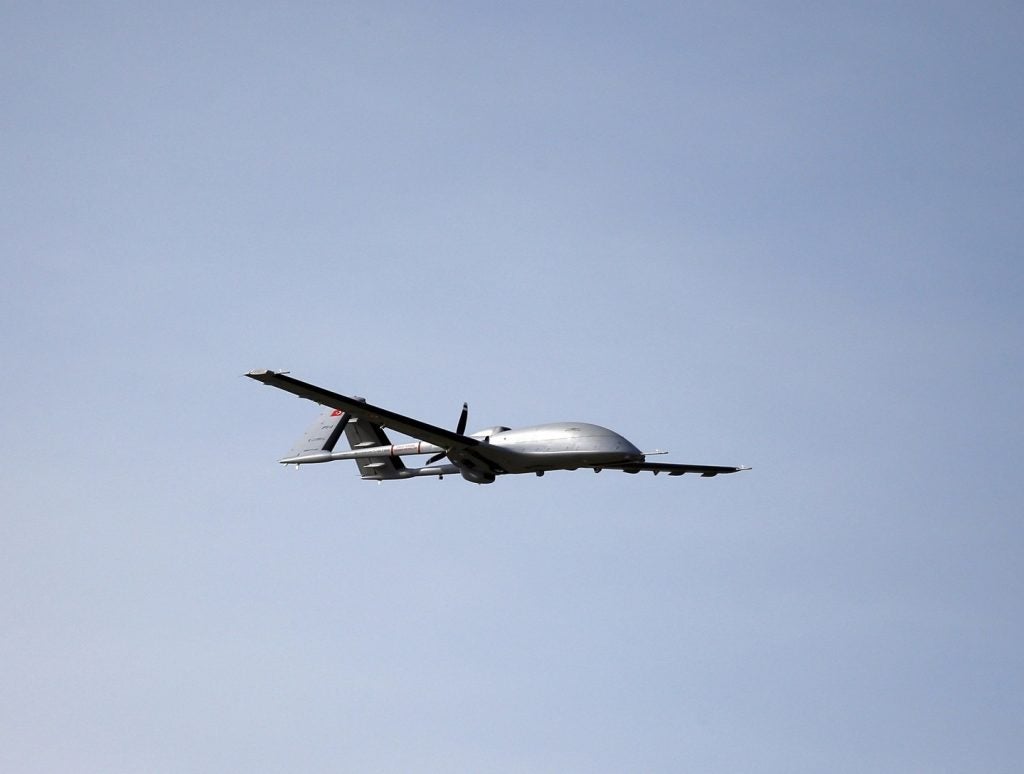Turkey's Bayraktar TB3 unmanned combat aerial vehicle (UCAV) achieves a milestone with its fifth successful flight test, demonstrating capabilities in medium-altitude flight with landing gear retracted.
Equipped with a domestically developed engine, the TB3 is designed for deployment on aircraft carriers, offering reinforced landing gear, folding wings, and increased power. The recent test flight in the northwestern province of Tekirdağ showcased a speed of 130 km/h during previous tests.
Selçuk Bayraktar, Baykar's chief technology officer, confirmed the achievement on the social media platform X, "Bayraktar TB3 successfully completed its fifth flight test."
Designed for deployment on ships like Turkey's newly commissioned aircraft carrier, TCG Anadolu, the Bayraktar TB3 possesses reinforced landing gear, folding wings, and a more powerful engine compared to its predecessor, the Bayraktar TB2. The recent flight tests paved the way for the UCAV's operational readiness on carriers, offering strategic advantages in maritime environments.
Publicly exhibited for the first time at Turkey's premier technology and aerospace festival, Teknofest, the TB3 has garnered attention for its enhanced capabilities and potential for carrier-based operations. Selçuk Bayraktar announced plans to initiate tests for ship-based operations starting next year, further expanding the UCAV's operational scope.
With a maximum takeoff weight of 1,450kg and a payload capacity of 280kg, the Bayraktar TB3 is nearly two times heavier than its predecessor. The UCAV is expected to have a range of 1,000 nautical miles, positioning it as an asset for defence applications.
Turkey has initiated to strengthen its domestic defence industry, aiming for 75% domestic involvement in defence procurement programmes by 2023. Despite uncertainties about achieving this goal, Turkey's defence industry development is making notable strides. Successful platforms like the TB2 Bayraktar contribute to Turkey's growing influence in the UAV market, attracting foreign buyers.
Baykar's UAV development has positioned Turkey as a player in the global market. Since initiating unmanned aerial vehicle research and development studies in 2003, 83% of Baykar's 83 revenues have come from exports. With export agreements for Bayraktar TB2 and Bayraktar AKINCI to numerous countries, Baykar's impact on the global UAV landscape remains robust.
The Bayraktar TB-2 drones played a role in Ukraine's resistance against Russia's invasion following the donation of the drones by Baykar.











